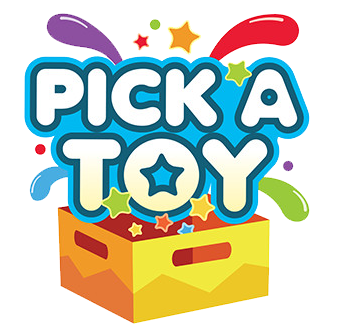Title: "Sensory Toys as Educational Tools: Learning Through Play"
Introduction
Play is often seen as a child's natural way of exploring and learning about the world around them. It's through play that they develop important cognitive, social, and emotional skills. Sensory toys, designed to engage multiple senses, have gained popularity not only for their therapeutic benefits but also as powerful educational tools. In this blog, we'll explore how sensory toys can be harnessed as educational instruments that foster learning through play.
Understanding Sensory Play
Sensory play refers to activities that stimulate one or more of the five senses—sight, touch, smell, sound, and taste. It's an active, hands-on form of learning that encourages children to explore and discover the world around them. Sensory play experiences can be both enjoyable and educational, providing a holistic approach to learning.
The Educational Benefits of Sensory Toys
Cognitive Development: Sensory toys engage children's cognitive abilities by encouraging them to observe, compare, and contrast different sensory elements. For instance, a child playing with textured shapes is not only exploring the sense of touch but also developing their understanding of shapes, sizes, and patterns.
Language Skills: Sensory play often involves conversation and verbal expression. Children learn to describe their sensory experiences, which helps enhance their vocabulary and communication skills. It also provides opportunities for caregivers and educators to engage in meaningful discussions with children.
Problem-Solving Skills: Many sensory activities involve a level of problem-solving. For example, figuring out how to fit different-shaped blocks into corresponding holes or manipulating materials like playdough or clay to create specific shapes and structures encourages critical thinking.
Math and Science Concepts: Sensory toys can introduce basic math and science concepts in an engaging way. Pouring and measuring water in a sensory table, for instance, can teach volume and capacity. Exploring cause-and-effect relationships can help children understand basic scientific principles.
Emotional Development: Sensory play allows children to express their emotions freely and safely. It can be particularly helpful for children who struggle with sensory sensitivities or emotional regulation, providing a soothing and self-soothing outlet.
Social Skills: Sharing sensory play experiences with peers promotes social interaction, cooperation, and the development of empathy. Children learn to take turns, negotiate, and communicate effectively.
Examples of Sensory Toys for Educational Play
Sensory Bins: Filled with materials like rice, beans, or water beads, sensory bins provide opportunities for children to explore textures, colors, and shapes. They can also incorporate thematic elements to introduce science or geography concepts.
Playdough and Clay: Manipulating playdough or clay helps develop fine motor skills, creativity, and imagination. Children can use these materials to sculpt, mold, and create a wide range of objects.
Sensory Bottles: These clear containers filled with water, oil, and various small objects provide visual and auditory stimulation. Children can observe how objects move within the liquid and listen to the soothing sounds they create.
Puzzles and Building Blocks: These tactile toys help children develop spatial awareness, problem-solving skills, and fine motor control. They also foster creativity as children construct their own designs.
Musical Instruments: Instruments like xylophones, drums, and shakers introduce children to the world of music, rhythm, and sound.
Conclusion
Sensory toys are not just playthings; they are powerful educational tools that harness the natural curiosity and wonder of children. Through sensory play, children can develop cognitive, language, problem-solving, and social skills in a fun and engaging manner. By providing these enriching sensory experiences, caregivers and educators can support holistic learning and encourage a lifelong love of exploration and discovery. Sensory toys offer an exciting avenue for learning through play, making education an enjoyable adventure for children of all ages.
